Abstract
Among the mold toxins the most toxic ochratoxin, ochratoxin A, commonly occurs in many grains, other feedstuffs, and in soil but in low concentrations. The amount required to produce acute toxicity in ruminants makes such occurrences unlikely. Toxic effects are more likely to occur in chronic low-level intoxication. The lethal single oral dose in cattle is high, probably being a few milligrams more than 13 mg/kg. The lethal level produced by repeated feeding to goats was 3 mg/kg. Ochratoxin A occurred in cows milk and urine but only when massive doses were ingested. Abortion or fetal death, though occurring in rodents, are unlikely to be induced in cattle.
Full text
PDF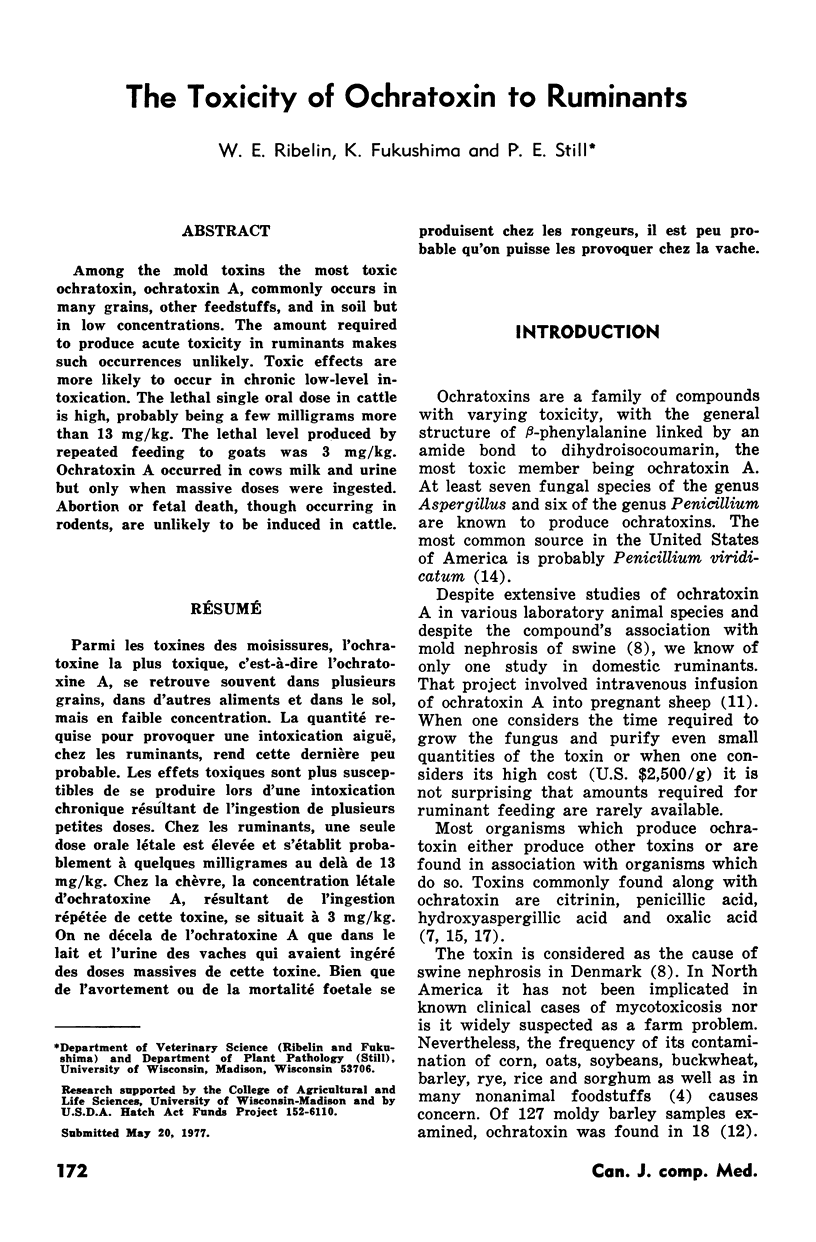
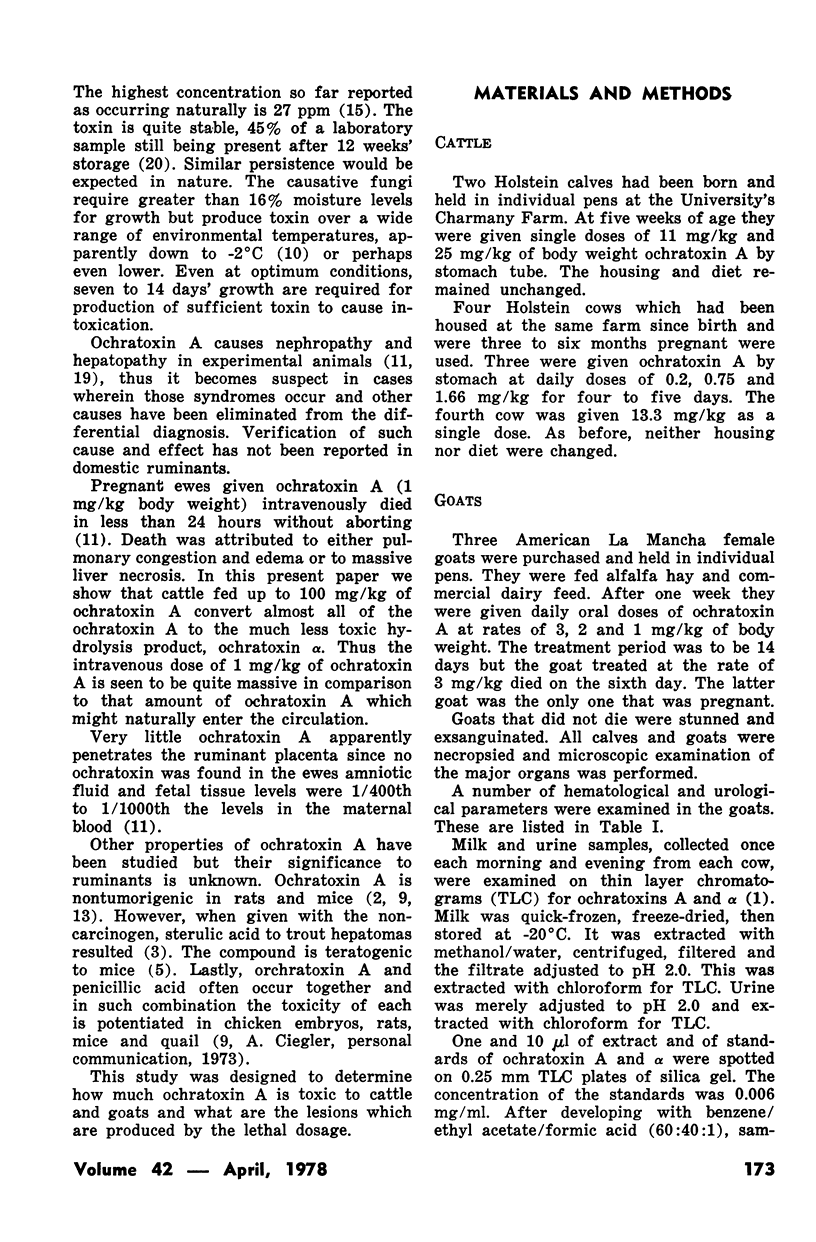
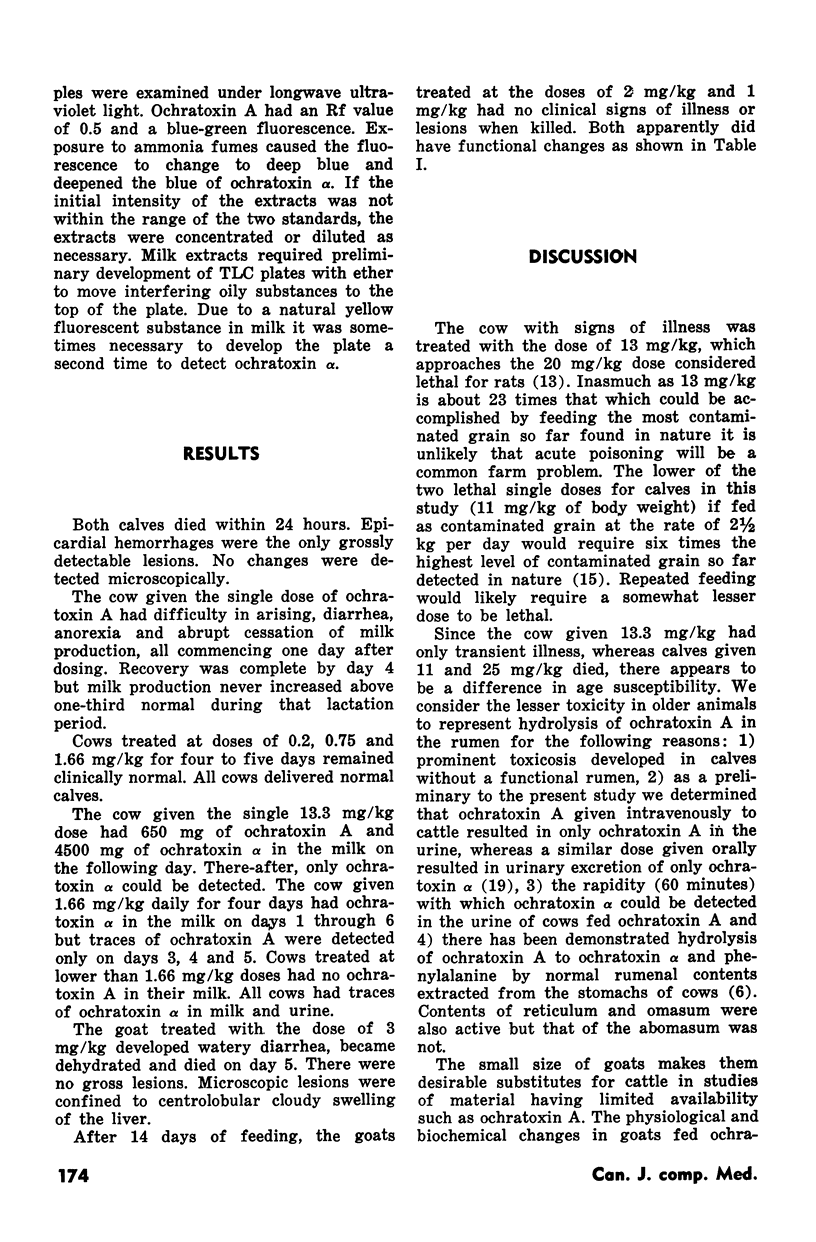
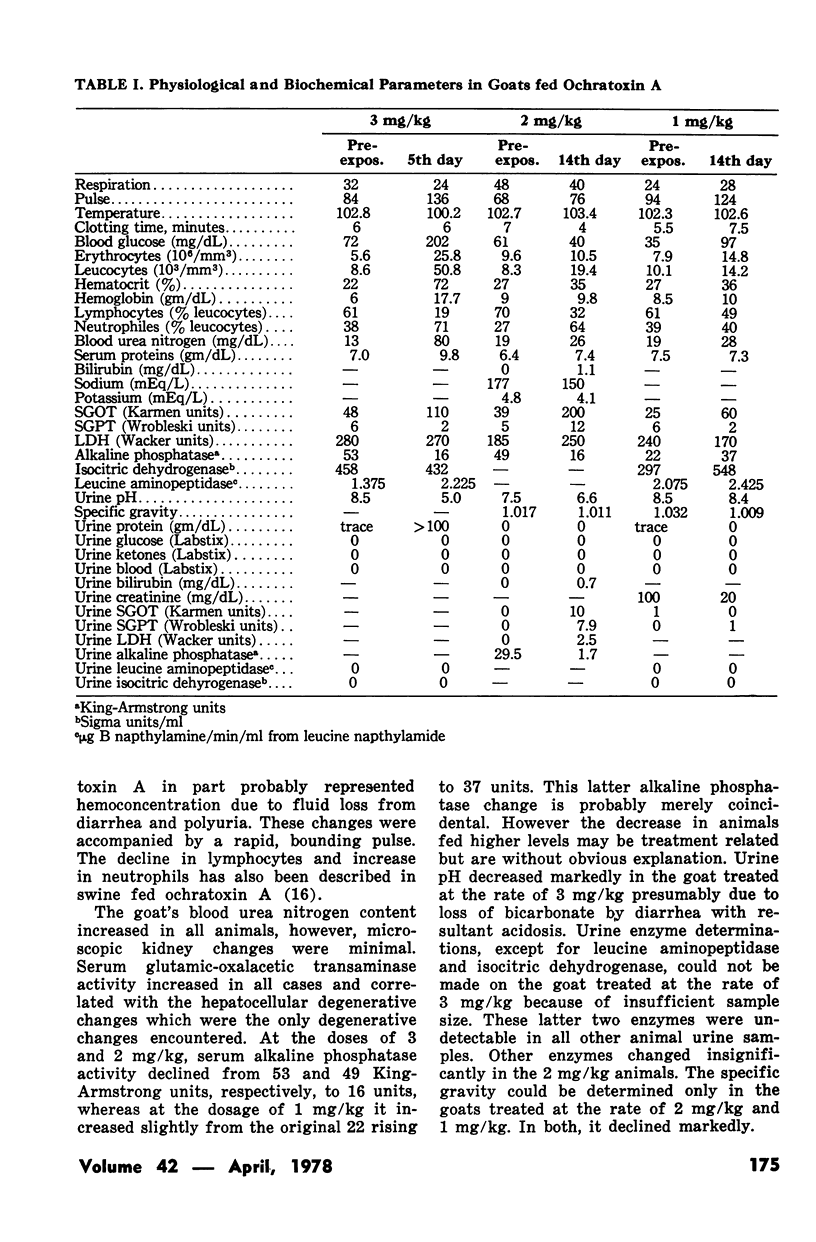
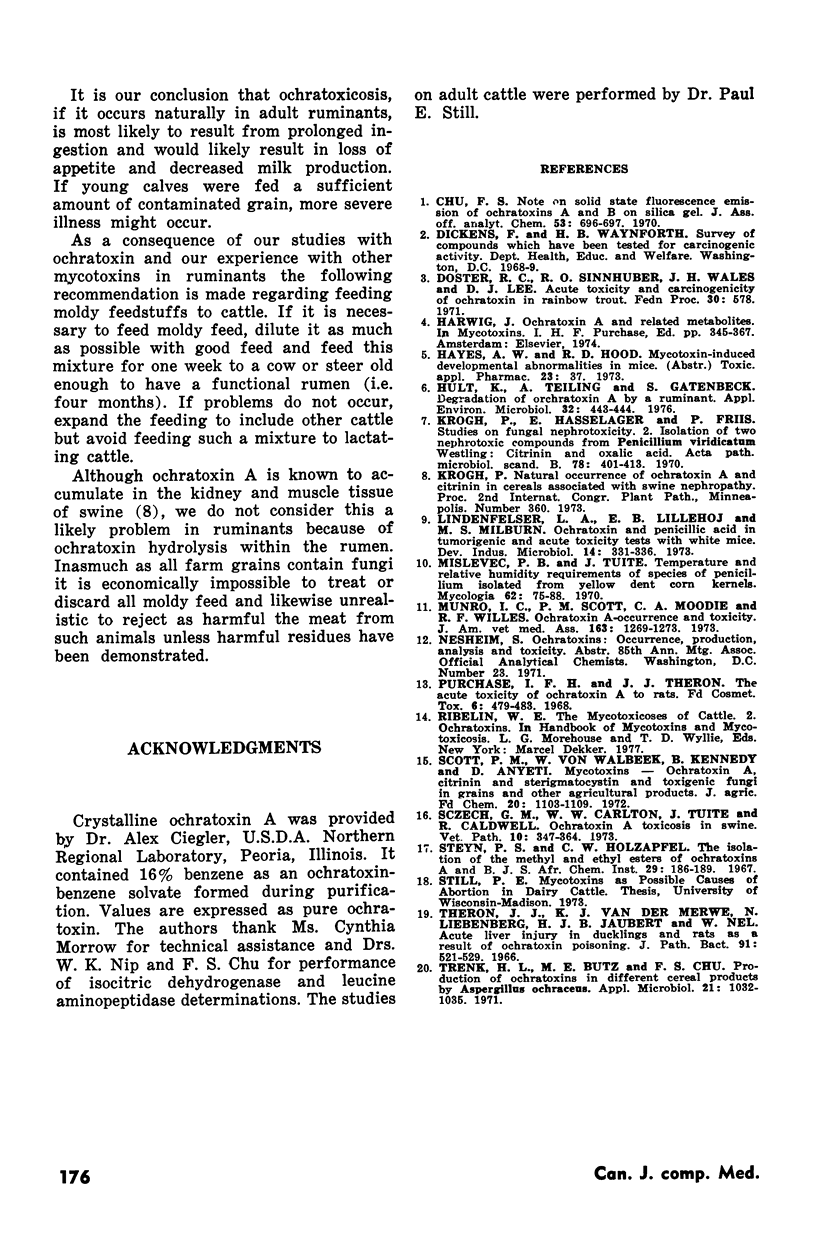
Selected References
These references are in PubMed. This may not be the complete list of references from this article.
- Hult K., Teiling A., Gatenbeck S. Degradation of ochratoxin A by a ruminant. Appl Environ Microbiol. 1976 Sep;32(3):443–444. doi: 10.1128/aem.32.3.443-444.1976. [DOI] [PMC free article] [PubMed] [Google Scholar]
- Krogh P., Hasselager E., Friis P. Studies on fungal nephrotoxicity. 2. Isolation of two nephrotoxic compounds from Penicillium viridicatum Westling: citrinin and oxalic acid. Acta Pathol Microbiol Scand B Microbiol Immunol. 1970;78(4):401–413. [PubMed] [Google Scholar]
- Mislivec P. B., Tuite J. Temperature and relative humidity requirements of species of Penicillium isolated from yellow dent corn kernels. Mycologia. 1970 Jan-Feb;62(1):75–88. [PubMed] [Google Scholar]
- Munro C., Scott P. M., Moodie C. A., Willes R. F. Ochratoxin A--occurrence and toxicity. J Am Vet Med Assoc. 1973 Dec 1;163(11):1269–1273. [PubMed] [Google Scholar]
- Purchase I. F., Theron J. J. The acute toxicity of ochratoxin A to rats. Food Cosmet Toxicol. 1968 Dec;6(4):479–483. doi: 10.1016/0015-6264(68)90138-7. [DOI] [PubMed] [Google Scholar]
- Scott P. M., Van Walbeek W., Kennedy B., Anyeti D. Mycotoxins (ochratoxin A, citrinin, and sterigmatocystin) and toxigenic fungi in grains and other agricultural products. J Agric Food Chem. 1972 Nov-Dec;20(6):1103–1109. doi: 10.1021/jf60184a010. [DOI] [PubMed] [Google Scholar]
- Szczech G. M., Carlton W. W., Tuite J., Caldwell R. Ochratoxin A toxicosis in swine. Vet Pathol. 1973;10(4):347–364. doi: 10.1177/030098587301000408. [DOI] [PubMed] [Google Scholar]
- Theron J. J., van der Merwe K. J., Liebenberg N., Joubert H. J., Nel W. Acute liver injury in ducklings and rats as a result of ochratoxin poisoning. J Pathol Bacteriol. 1966 Apr;91(2):521–529. doi: 10.1002/path.1700910228. [DOI] [PubMed] [Google Scholar]
- Trenk H. L., Butz M. E., Chu F. S. Production of ochratoxins in different cereal products by Aspergillus ochraceus. Appl Microbiol. 1971 Jun;21(6):1032–1035. doi: 10.1128/am.21.6.1032-1035.1971. [DOI] [PMC free article] [PubMed] [Google Scholar]


